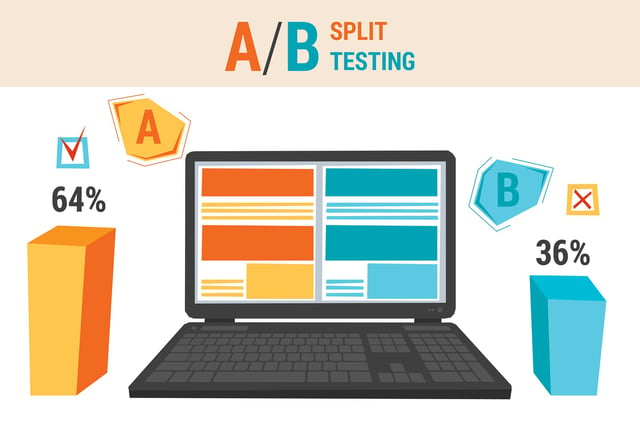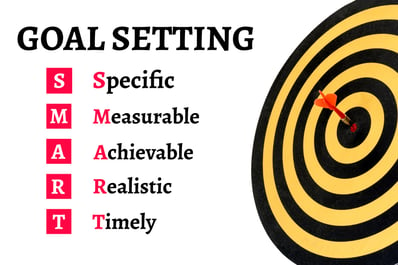
If you want to start an argument, ask a CEO what a Growth Hacker is and what they do. I recently saw an article that contained no less than seven different “Growth Hacker” definitions being offered up by as many experts.
The term, however, was first coined by Sean Ellis, who describes a Growth Hacker as:
"A person whose true north is growth. Everything they do is scrutinized by its potential impact on scalable growth. I’ve met great growth hackers with engineering backgrounds and others with sales backgrounds.
The common characteristic seems to be an ability to take responsibility for growth and an entrepreneurial drive (it’s risky taking that responsibility). The right growth hacker will have a burning desire to connect your target market with your must-have solution.
They must have the creativity to figure out unique ways of driving growth in addition to testing/evolving the techniques proven by other companies.
I used the word “hacker” to mean an attitude of scrappiness rather than being a coder. In other words, a growth hacker ‘hacks’ a way to move the metrics.”
Are You Growth Hacker Material?
A great Growth Hacker is daring and creative and has an understanding and working knowledge of both metrics and marketing. A Growth Hacker does not need a background in coding or programming and in fact, the characteristics that come with being a good programmer are not the same ones required to be a great Growth Hacker.
Growth Hackers are more than marketers. They need to possess a vast range of knowledge and be visionary and strategic in their thinking. These people are not confined by boundaries and their work often impacts the product itself, as well as the distribution of the product with the goal of fostering overall growth.
Andrew Chen heads up driver acquisition programs for the Growth team at Uber and believes that a Growth Hacker is the new VP of Marketing. In his world of Silicon Valley startups, this is absolutely true.
Startups require rapid growth for survival and the ability to compel your customer base to buy when you may still be in the process of trying to identify just who the customers are and what drives them.
The biggest difference for startups however is usually related to resources. And executing a cutting edge program with virtually no budget requires all the traits and attributes of a Growth Hacker, because if your metrics are not growing at 20 - 30% month-over-month as a startup, you may not survive.
Growth hacking has been primarily associated with startups, but it will soon find its way into innovative companies with an established brand and customer base.
Established companies are usually content with a 10 to 20% growth rate for the entire year and are typically more concerned about anything happening that could potentially damage the brand.
In a more established company, the Growth Hacker will need to be cognizant of the overall brand and must be able to draw the line on approaches that may boost ld growth, but not be in line with the interest of the overall brand.
Look Behind the Curtain
So what magic does the Growth Hacker possess? What is in his or her secret arsenal of tools that can allow your business to duplicate the success great Growth Hackers drive?
If you look behind the curtain, you may be disappointed to learn that it is in fact not a secret formula or specific set of growth hacking strategies that results in success, but rather the mindset of the individual tapped to run growth strategies. This person must have the skills and experience to envision all aspects of the product.
Innovation
Because most growth hacks have a very limited lifespan, it is never a fix and forget type situation. Every day, the current practices need to be analyzed and challenged.
New ideas, no matter how farfetched need to be considered. If someone tells you they have a growth hacking playbook, walk away. There is no set formula and there aren’t “proven growth hacking techniques” Each situation is unique unto itself.
Analytics
At the end of the day, analytics and results are the biggest factors driving the decision-making process for Growth Hackers. Data allows them to see, for example, what happened when a product feature was eliminated or simply not promoted in messaging.
Analytics tell the Growth Hacker what is working and what is not, allowing success to be replicated and enhanced and failures to be avoided in the future.
SEE ALSO: Top 5 Considerations for Creating a Successful eCommerce Site
A/B Testing
A good Growth Hacker does more than A/B test. They approach testing as more of a series of highly educated trials and understand that small successes over time will result in an amazing success story. In some ways, Thomas Edison can be seen as the original Growth Hacker.
In 1915 he is reported as saying, No results?! Why, man, I have gotten a lot of results! I know several thousand things that won’t work.”
Now, hopefully for your company’s sake it won’t take the Growth Hacker several thousand times to get it right, but you get the idea. Several pundits have stated that Growth Hacking is more similar to a marathon than a sprint. But I disagree.
Growth hacking is more like the situation of having a sprinter running a marathon. You need to move quickly, but with the understanding that you’re in it for the long haul.
SMART Goals
A SMART Goal is one that is Specific, Measurable, Achievable, Result-Focused and Time-Bound. The Growth Hacker must have a well-defined goal that meets these objectives.
For such a program, you first tackle the low hanging fruit and expand strategies outward from there. Using your ever-growing history of analytics, you’re able to make better and more refined decisions.

FOCUS ON ENTIRE LIFECYCLE
Just like a traditional marketer, the Growth Hacker must focus on the entirety of the Buyer’s Journey because if you cannot retain site traffic, there is no point in trying to acquire that traffic in the first place.
SEE ALSO: What Is Inbound Marketing & Inbound Commerce Methodology?
This means having a growth hack established and in place for each stage of the Buyer’s Journey. Just like HubSpot promotes—Attract > Convert > Close > Delight—the Growth Hacker needs to implement a program that addresses each of these stages.
It Takes a Village (well at least a team)
At the very early stages, a single Growth Hacker can set up a program and get the low hanging fruit to engage and convert. However, as the program ramps up, there are a lot of moving parts and having a single person making all the moves is not practical.
You’ll need a General to analyze performance and report on results, but for best results each team member should be a Growth Hacker in their own right, specialized in a particular area.
Growth Hackers are a unique breed of marketer, a person who is willing to take risks and push boundaries. They possess a vast understanding of all aspects of your business and understand both traditional and digital marketing strategies and tactics.
To that end, a Growth Hacker is not born but rather evolves into the type of person who has the background and courage to put it on the line each day. To gain further insights into what it takes to be a great Growth Hacker, become a member of Growthhackers.com.
Should you be marketing to the C-Suite? Check out the In Search of the Holy Grail: Marketing to the C-Suite ebook to find out.

